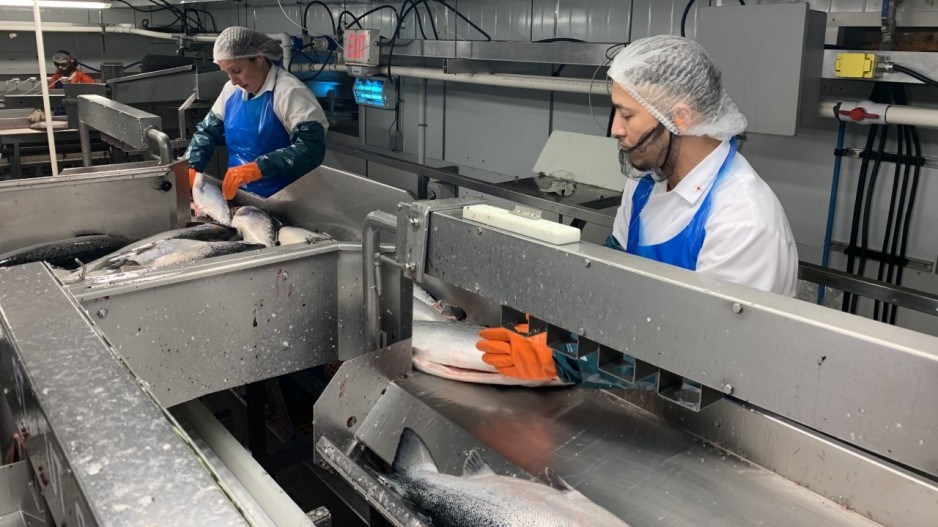The Monterey Bay Aquarium’s Seafood Watch has downgraded Atlantic salmon farmed in B.C. from a “yellow” to a “red” warning, based on chemical use and disease ratings.
In 2017, B.C. farmed Atlantic salmon got a “yellow” rating from Seafood Watch, meaning it was a “good alternative” to other seafood that may be considered less sustainably raised or caught. It was one of the few farmed salmon producing regions to get the yellow rating.
But Seafood Watch recently downgraded B.C. farmed Atlantic salmon back to “red,” based on pesticide use and concerns about disease transmission to wild salmon.
“Atlantic salmon farmed in British Columbia, Canada, in marine net pens has been downgraded to an Avoid due to red Chemical Use and Disease ratings,” says Seafood Watch, which provides sustainability ratings for both wild and farmed seafood using green, yellow and red codes.
“On average, from 2018-2020, half the farms didn’t use any antimicrobials, but the other half used them multiple times a year. Even though pesticides were used less than once per site per year, antimicrobials listed as highly important for human medicine by the World Health Organization were used an average of 1.3 times per site per year.
“The open design of net pens means there’s an inherent risk of farmed salmon transmitting disease to wild salmon populations.”
Meanwhile, some salmon farms in Nova Scotia, Chile and Norway have seen their ratings change from red to yellow, while others remain red.
“Atlantic salmon farmed in Nova Scotia, Canada, in marine net pens has been upgraded to a Good Alternative mainly due to a green Chemical Use rating and yellow Escapes and Disease ratings,” Seafood Watch explains.
“Antimicrobial use has declined to less than one treatment per site per year, and no pesticides have been used to treat parasitic sea lice since at least 2016.”




